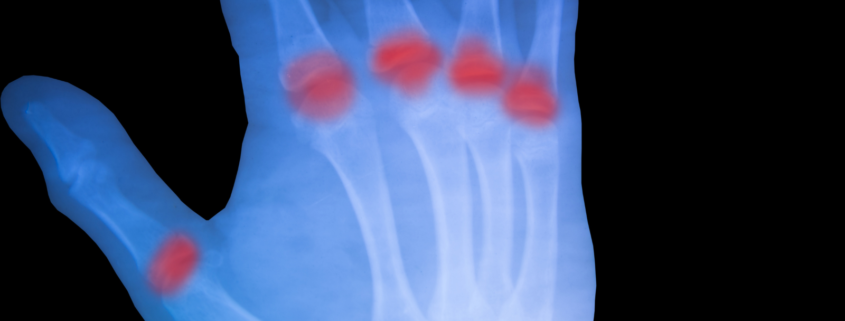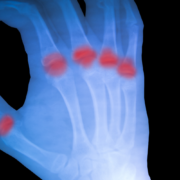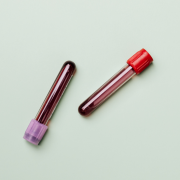Autoimmune Diseases – The Danger from Within the Body
Chronic and autoimmune diseases are increasingly burdening our lives in industrialized countries. Intestinal diseases like Crohn’s and ulcerative colitis, Type 1 diabetes, Hashimoto’s thyroiditis, alopecia areata, multiple sclerosis, and rheumatoid arthritis are on the rise. Particularly difficult for those affected: they seem incurable. Therefore, it is important to recognize the early signs as soon as possible and break the cycle.
Is the Disease Really Harmless?
Many severe chronic diseases and autoimmune disorders often start with harmless allergies and intolerances. When treated solely with conventional methods, symptoms often improve only temporarily or not at all. This is because the root of the problem is not being addressed—a very typical issue that healthcare professionals frequently battle against. Patients often have to be sick first, rather than taking early preventive actions. At the end of the chain often lies a painful disease from the rheumatic spectrum. With the help of natural medicine, we can often prevent this chain of illnesses and even provide help when a disease has already become chronic. Even when conventional treatment can only maintain the status quo, natural medicine often enables us to achieve improvements or even cures. To explain this, I would first like to take a brief detour into the types of diseases.
What Are Autoimmune Diseases?
In an autoimmune disease, the body directs its healing powers against itself due to „faulty“ immune system control. That’s why they are also called auto-aggression diseases—a collective term for all diseases that occur because the immune system attacks healthy structures in the body. Sometimes the skin is the most visibly affected, for example in allergies, which usually originate in the gut. In addition to the aforementioned, well-known examples include psoriasis, as well as vitiligo, which Michael Jackson suffered from, where the skin can no longer produce pigments. In the worst-case scenario, even all organs or organ systems can be affected. The list of these diseases is almost endless, and they all have one thing in common: the cooperation between various cells and messenger substances of the immune system is not functioning as it should. It’s as if the production chain in a car is broken, and you have wipers installed to keep bad weather at bay, but the windshield is missing.
The Rheumatic Spectrum
Rheumatism has long since become a widespread disease. The inflammatory joint disease rheumatoid arthritis is very common. In this disease, multiple joints are chronically affected. Inflammatory cells and substances attack joint cartilage and bone. The joint structures continue to deteriorate, leading to the destruction of the joints, particularly the joint cartilage. If the disease is particularly severe, other organs such as eyes, heart, lungs, pleura, nerves, and even blood vessels can also be affected. I find it interesting that study results show that around 70 percent of all patients have a deficiency in vitamin D.
What Triggers an Autoimmune Disease?
The triggers for autoimmune diseases are as numerous as the conditions themselves, and they often cannot be definitively identified. Long-term poor nutrition can be a cause, as can genetic predisposition. Negative environmental influences or ongoing stress from modern life, for which our bodies and minds are not designed, also play a role. Particularly stress, which by nature was only intended as short-term aid for dangerous situations, poses a significant challenge for us and can even shift our hormonal balance. This then affects both our mental and physical health.
As varied as the triggers are, the process is similarly consistent. All the mentioned causes generally lead to chronic inflammation in the body. To understand this, we need to know that inflammation, in itself, is not a bad thing initially. The body has designed it as a repair kit for external and internal wounds. These need to be „patched up,“ and pathogens must be eliminated. However, sustained inflammation changes the metabolism, throws the immune system out of balance, and fuels the formation of antibodies. Then, it’s no longer external pathogens that cause the disease. The body starts attacking its own cells, negatively influencing them or, in the worst case, destroying them.
Risk Groups: Women and the Elderly
Particularly women and older people are prone to illness. If an autoimmune disease is present, the risk of contracting COVID-19 also increases. This is because the use of so-called immunosuppressants, which are medications designed to curb an overly sensitive malfunction of the immune system, generally increases the likelihood of catching a virus, as the body is less able to defend itself against intruders as a result.
What Can You Do?
Generally, I recommend an anti-inflammatory diet with lots of variety—meaning a diet rich in antioxidants, Omega-3 fatty acids, phytonutrients, and many other micronutrients. Opt for whole grain products instead of white flour baked goods, as well as lots of fruits, vegetables, nuts, and seeds, instead of overly sweetened or excessively salted and processed snacks. Fish that is not too high in mercury and cold-pressed oils can also have anti-inflammatory effects. On the other hand, consuming too much meat, as most of us do, promotes inflammation and thus disease. This doesn’t mean you have to become vegan right away. But when it comes to your own health, it’s worth considering alternatives or even changing your dietary habits. Usually, this is only difficult at first. However, once you start experiencing the initial benefits, the changes feel much less like deprivation, as your quality of life dramatically improves.
Generally, you can influence, alleviate, and regulate the course of the disease in your body with an anti-inflammatory diet. Always provide your body with essential micronutrients to protect yourself preventively against further diseases that can even exacerbate your symptoms.
Don’t Self-Medicate!
Despite all the possibilities that patients have to positively influence the course of their disease themselves, I strongly advise against self-medication. Especially with topics as little researched as the addition of Vitamin D, for which there are no long-term studies yet, I recommend regular consultations with medical professionals or naturopaths. Always be aware that natural remedies, and in my opinion, also dietary supplements, are medicine, whether or not they have been explicitly labeled as such. And especially in the case of autoimmune diseases, medicine plays a critical role. Within the realm of naturopathy, we must work with great care. About 80 percent of complementary medicine is aimed at stimulating the immune system. However, the flip side of this is that doing so would further aggravate the disease. Only 20 percent of naturopathy can perform what is known as immune modulation. That is, we try to adjust the immune system so that the autoimmune process stops. This could, for example, be achieved with combination preparations made from frankincense (for anti-inflammation and pain relief), turmeric (cell-protective, anti-inflammatory, and antibacterial), and Omega-3 fatty acids (against inflammation). I usually use AUTO-IM-PLUS by DarssNaturalis. Selen-Darss capsules combat stress at the cellular level with their main active ingredient, the trace element selenium. Medicinal mushrooms like Shitake or Maitake have a high density of vital nutrients, act as antitoxins, and can regulate the immune system and accelerate the healing of inflammation. Medication requires individual consideration and treatment. A high level of medical expertise and good medical training are essential for this. Only in this way can we ensure that we help patients and do not harm them because we are experimenting.





